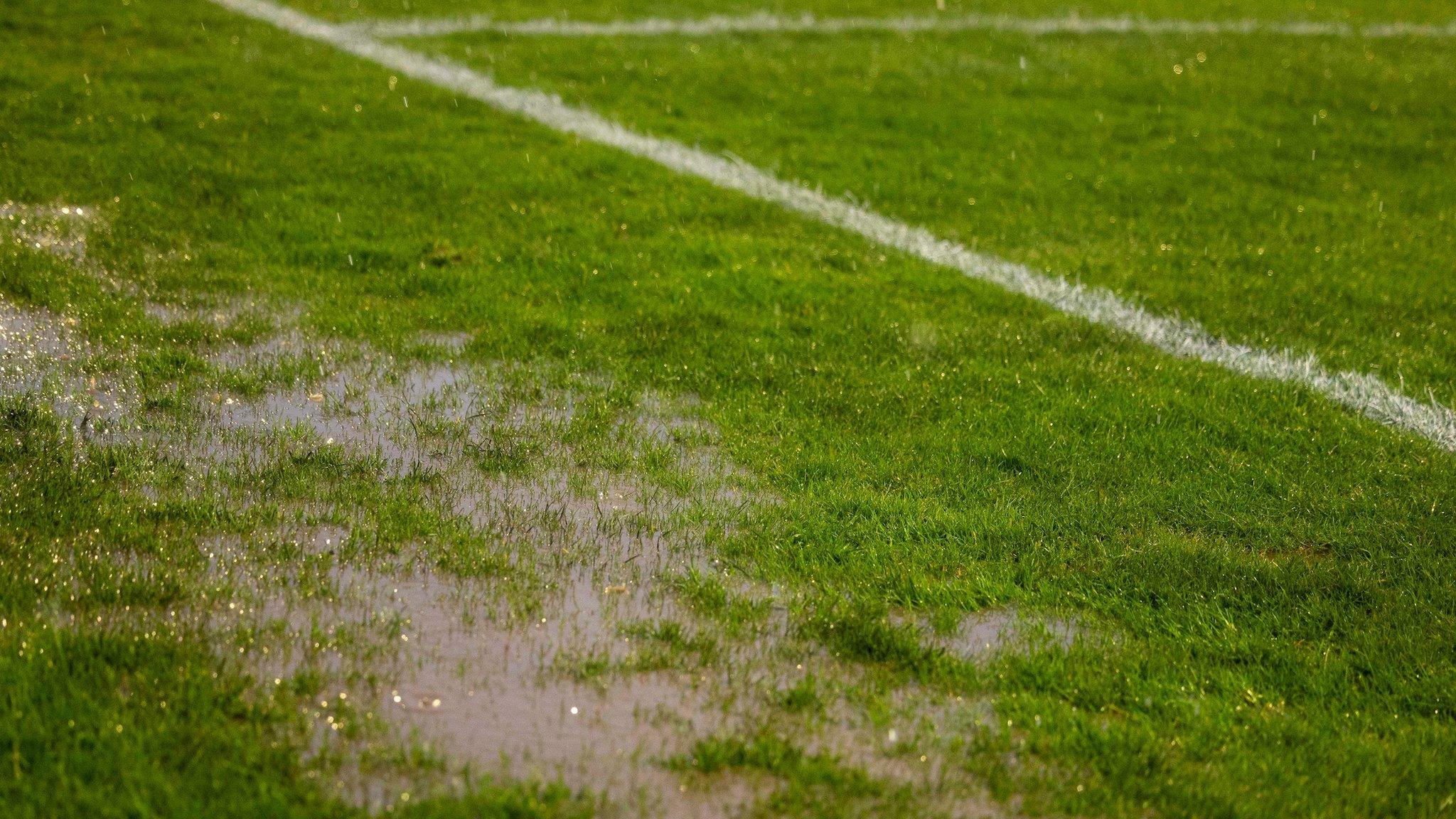Should grassroots football in Wales be a summer sport?
- Published

Chief executive Noel Mooney says the FAW are willing to consider "doing things differently"
Sodden pitches, games called off, weeks without football - grassroots football in Wales has been particularly hard hit by the wet winter we've had.
Is now the time for grassroots football in Wales to switch to summer?
Football Association of Wales (FAW) chief executive Noel Mooney said in February that he would welcome grassroots leagues wanting to trial playing games in the summer.
The need to "adjust for climate change" and extreme winter weather means the FAW is open to different parts of Wales - or different age groups - trialling the idea, he said.
"It would be foolish and wrong for us not to consider doing things differently," Mooney added.
"Maybe there's a league out there that wants to try and see what it would be like to play at different times of the year."
A switch to playing summer football - as happens in the Republic of Ireland - has long been debated for the top-flight Cymru Premier.
Advocates for summer football have said it would be a way of helping Welsh clubs playing in Europe and also to increase crowds but the response has been lukewarm.
Nine of the current 12 Cymru Premier clubs have 3G pitches which allows them to play games in all weather conditions.
But lower down the Welsh football pyramid teams that play on grass pitches - council and privately owned fields - have been hit hard by the wet winter.
Senedd member Mike Hedges says climate change and wetter winters are causing too many grassroots games across the country to be called off.
Mr Hedges, the Labour member for Swansea East, wants to see a trial for a summer league or a mid-winter break.
"There are teams in Swansea that in November, December and January played three league games," Mr Hedges told BBC Radio Wales' The Phone In.
"It just really is having a huge effect on the continuity of the sport and people get out of playing.
"There's two options - we either have an official mid-winter break in November, December and January and add it on in May, June and July.
"Or we decide that we are going to run the season in a different way, perhaps from March to September/October."
John Chafey, secretary of Swansea Senior League club Sandsfields FC, would be in favour of a change to the season for grassroots and junior football.
"My team Sandsfields, we only played three games from 4 October to the 6 January," Mr Chafey said.
"I have a kid who plays Under-7s on a Sunday but he's fine because he plays on 3G pitches.
"But my eldest boy plays Under-13s and he missed eight weeks I think it was where there were no games at all due to the weather.
"Most of the teams in the Swansea Junior League have missed so many weeks, they lose interest.
"I'm all for a summer league because they will play more football and come the winter they'll have a well-deserved break then."
Callers to BBC Radio Wales' The Phone In had plenty to say on the subject.
"Some of the pitches are atrocious with the weather," Simon from Cardiff said.
"I totally agree with playing the football in the summer months where the pitches are greener.
"They may be harder but a bit of water would solve the problem."
"It's so much better to play in the summer and also from a spectators' point of view," Pete from the Wirral said.
"I'm just concerned what would happen to cricket and athletics - would you lose out?"
But Daniel from Carmarthen disagreed. He said: "I think the argument now for moving the season is weaker than ever with these 3G pitches.
"Carmarthen Town have got a 3G pitch and I don't think they've missed a game since they installed it.
"Contact sports need softer ground. I say if it's not broken, don't fix it."